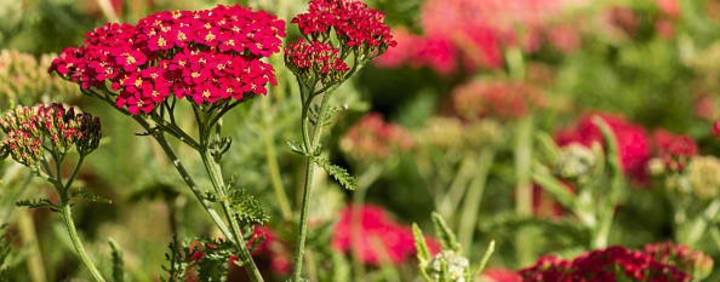Herb Wisdom, Women's Wisdom
Herb lore as a women's oral tradition

It's always been a little dangerous being a wise woman. Dangerous in whatever the sense it's meant: intelligent, cunning, experienced, old, witchy. In the long ago past, it meant you walked the fine line between miracle worker and heretic. To know the natural world, to understand it and feel it and teach it was somehow a sin. To be a wise woman was to be valuable and vulnerable, to have a weapon trained against you at all times. Is it the same today? It's still dangerous for a woman to speak her truth, her experience, her wisdom. Depending on the subject she can be ostracized, re-traumatized, re-victimized, vilified-only now it's not just a village hurling offense, it's on a global scale. In this moment that judgement is on every phone, and computer and television and it's a stone that drags us all down away from the light. Sisters, let's light a candle of wisdom together. I want to fight this tide of indifference and skepticism and sensationalism. I want to bring back the old ways that mattered, that helped, that healed. It is my passion to preserve this women's tradition, our oral history. The history of every culture that translates perfectly because it is the language of the body and the spirit, it is our collective medicine story.

My medicine story began 14 years ago. I did not grow up with herb medicine in the home, herbs weren't anything more than spices to me. Aromatic basil, warm cinnamon, bold oregano-they were flavors and not anything more. Like the average person, I probably tried ginseng when I was tired and echinacea when I had the sniffles but I never invested my time in learning the traditions that surround herbalism. It wasn't until I started working at a co-op with an amazingly curated herbal selection that my education started. I was lucky enough to learn about herbal medicine from a woman with formal training and a real gift: the ability to weave an herb to a need (Yes, Chelsea, I'm talking about you!). The patience she showed to people who suffered was a lesson in listening. The herb stories she shared made natural medicine relevant and relatable. For most people, this would be their first experience with old healing ways-and what an experience! With her I found something that I didn't even know I was looking for, a mentor. Watching her, engaging with her, learning from her opened an entirely new world for me. I felt empowered and curious, but most of all I felt like a sister. As someone who loves a puzzle the study and application of herbal medicine delighted me. I soaked up as much as I could by listening, reading and experimenting. I think I tried just about every herb in that department because I wanted to know exactly how it felt, how it tasted, how fast it worked, and how effectively. I taught myself to remember the herbs with stories and nick-names, even physical motions to help describe the way they acted in the body. The crucial part of this story is this: the more I learned the more I found other women who also wanted to learn.
In a world where women have no true body autonomy, taking charge of your health can feel like a rebellion. Our bodies are regulated as if we are a thing outside of ourselves. The ways in which we express our feelings and experiences are disbelieved and invalidated. Beauty of an impossible standard is perpetuated, along with toxic perfectionism. I never really understood why little motivational sayings and posters got so popular, but maybe I do. No one is cheering for us, so we have to cheer for ourselves.
If I can ask my sisters one thing, it is this: just learn one herb. Learn it's story, sing it's song, dance it's dance on this earth. Give it like a gift to your family and your children. Give it to your friends and be true when you tell it. You don't have to be a poet for this, nor do you have to be anything you're not already. Just talk your herb. These are the grandmother stories, and if we don't tell them they will be lost. They are grandfather stories too, grandparent stories, ancient stories and anyone who wants to can tend this light with us. Finding a way to reconnect us all with our own bodies is a humanity story, and might be what helps heal the sin of ownership.
My hope is to be a part of a community of people ready to trust that plants can be medicine. Ready to combine a healthy respect for modern medical science and reconnect with powerful herb allies that usher in an integrated health revolution. I have no shame in saying I would be dead without modern western medicine. I could have died of any number of infections. I would have died in childbirth, losing my son as well. I am grateful to have had lifesaving interventions as simple as antibiotics, but it wasn't until I started learning herbal medicine that I truly found homeostasis and acceptance in my own body. That balance did not happen overnight. It took years of trial and error, serendipitous moments, and research to resolve even the simplest of my chronic issues. Changing behavior patterns are still a struggle for me, and I accept that I still have to rely on a prescription to maintain my health. Herbs are my go to, though. The first sign of imbalance and I manage it, I guide my body back. I don't advocate waiting until something is at it's worst to take care of it. Don't wait until pain is a 10, don't wait until your fever is so high that you are hallucinating. Taking charge of your health doesn't only have to be through herbal medicine, either. It can mean that you move your body more, or eat a certain way. Health care can be watching your favorite TV show or doing a crossword puzzle. I find that herbs are empowering, though, and curious. Knowing exactly how to fix a problem is incredibly satisfying. Sharing this knowledge, even more so.
I think any platform where people can share their herb stories and connect with each other is critical for the survival of this knowledge. The more outlets for herbal wisdom, the better. I've thoroughly enjoyed podcasts on herbs with engaging guests like Rosemary Gladstar and Guido Masé. Along with Gladstar and Masé, Brigitte Mars and Matthew Wood have accessible books that offer clear and empowering herbal information and instruction. I'm certainly not a fan of sensational claims, so I am glad to say these herbalists (along with a much larger community not named here) offer sane and reasonable advice backed up by years of experience and research.
I'd like to share with you a few of my favorite bite sized herblore stories, maybe you'll be inspired to learn more. Maybe you'll feel empowered to learn more, maybe it will just be a little anecdote you pass along. Maybe you'll say it's story at just the right time-when someone else needs to hear it.
Chicory-The clockwork plant The soft blue and edible flowers open and close regularly, almost like a clock. Think: Regular. The chicory root contains inulin fiber which helps to keep your elimination system regular as a part of a healthy diet. In addition to fiber, chicory is a bitter herb and bitter herbs stoke the digestive fire.
Holy Basil-Scattered If you can, imagine yourself like a dandelion gone to seed with your thoughts like those tiny pixie fluffs flying away from the stalk. Holy Basil helps to pull those seeds back in, reforming the flower, pulling your mind back together to form a calm and focused state. Not to dissimilar to letting your hand gently ride the air currents outside the window of a car as you drive or ride.
Yarrow-Battlefield I don't know why I always call her Grandmother Yarrow, but I do-it just seems right. Maybe it has to do with the movement of blood and old blood. A poultice of yarrow leaves, chewed up in the mouth even, can be placed to staunch bleeding if needed. Think nosebleeds and cuts. In a salve or an oil it can be used to move old blood and fluid from bruises or swollen ankles. It's Latin name is Achillea millifolium-named after the ancient soldier Achilles, and has been used in the past as battlefield medicine.

There are thousands of more herb stories, but I'll leave it at three. Three is a magical number, and this is magic of a sort. Join me in preserving this heritage, please. This is a call to share what you know and love about herbs, it's time for us all to grow.
About the Creator
Sarah Snider
I am a great lover of poetry, magic, mystery and science. I am passionate about sharing what I know about herbs and herbal medicine.
She/Her
Enjoyed the story? Support the Creator.
Subscribe for free to receive all their stories in your feed. You could also pledge your support or give them a one-off tip, letting them know you appreciate their work.






Comments
There are no comments for this story
Be the first to respond and start the conversation.